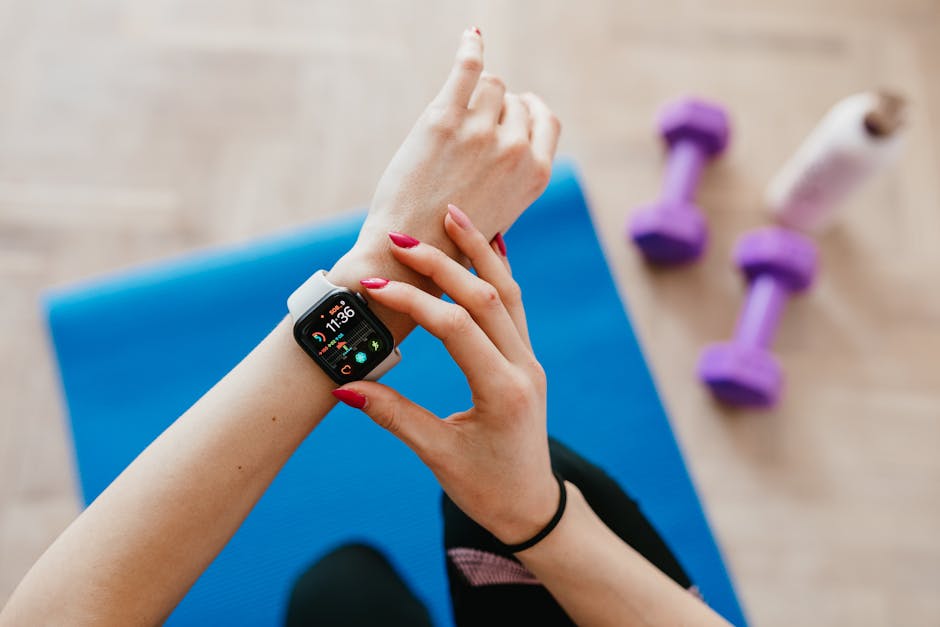Brand-New Fitness Tracker Apps to Help You Stay Healthy

Fitness tracker apps have become essential tools for individuals looking to maintain a healthy lifestyle. These innovative applications leverage technology to monitor various aspects of physical health, offering users insights into their daily activities, sleep patterns, heart rates, and more. With a surge in health consciousness, the demand for reliable fitness tracking solutions has grown exponentially. This article explores some of the newest fitness tracker apps that can help you stay healthy and achieve your wellness goals.
Top Features to Look for in Fitness Tracker Apps
When choosing a fitness tracker app, it's important to consider the features that will best support your health objectives. Modern apps offer a wide array of functionalities designed to cater to different aspects of fitness and well-being. Here are some key features to look for:
- Activity Tracking: Tracks steps, distance, and calories burned.
- Heart Rate Monitoring: Provides real-time heart rate data.
- Sleep Analysis: Monitors sleep quality and duration.
- Nutrition Logging: Helps track daily food intake and nutrients.
- Workout Guides: Offers personalized workout plans and exercises.
These features not only help you keep track of your physical activities but also offer comprehensive insights into your overall health. Many apps integrate seamlessly with wearable devices like smartwatches, providing more accurate data and enhancing the user experience.
Leading Fitness Tracker Apps of 2023
The market is flooded with numerous fitness tracker apps, but a few stand out due to their unique offerings and user-friendly interfaces. Here are some of the top fitness tracker apps of 2023:
MyFitnessPal
MyFitnessPal has long been a favorite among fitness enthusiasts. Known for its extensive food database and easy-to-use interface, this app allows users to log their meals, track their nutrient intake, and monitor their progress over time. The app also integrates with various fitness devices and other health apps, providing a holistic approach to wellness.
Fitbit App
The Fitbit App is designed to work seamlessly with Fitbit's range of wearable devices. It offers detailed insights into daily activities, sleep patterns, heart rate, and more. The app's social features allow users to join challenges, share achievements, and stay motivated by connecting with friends and family.
Strava
Strava is particularly popular among runners and cyclists. This app uses GPS technology to map routes, track distances, and analyze performance metrics such as pace and elevation gain. Strava's community features enable users to follow friends' activities, join clubs, and participate in virtual races.
Sleep Cycle
Sleep Cycle focuses on optimizing sleep quality by monitoring sleep patterns and waking users up during their lightest sleep phase. The app provides detailed sleep analysis reports and tips for improving sleep hygiene. It also integrates with other health apps to offer a comprehensive view of overall wellness.
A Comparative Table of Fitness Tracker Apps
| App Name | Key Features | User Rating (out of 5) |
|---|---|---|
| MyFitnessPal | Nutrient tracking, large food database | 4.5 |
| Fitbit App | Activity tracking, heart rate monitoring | 4.6 |
| Strava | GPS tracking for running/cycling | 4.8 |
| Sleep Cycle | Sleep pattern analysis, smart alarm clock | 4.4 |
The Role of Data Privacy in Fitness Tracker Apps
An important consideration when using fitness tracker apps is data privacy. As these apps collect sensitive health information, it is crucial to understand how this data is used and protected. Leading fitness tracker apps comply with privacy regulations such as the General Data Protection Regulation (GDPR) in Europe and the Health Insurance Portability and Accountability Act (HIPAA) in the United States.
User data is typically anonymized before being analyzed for trends or shared with third parties. Always review an app's privacy policy to ensure that your data is handled responsibly. Some apps offer additional security features like two-factor authentication to protect user accounts from unauthorized access.
The Future of Fitness Tracking Technology
The future of fitness tracking technology looks promising with ongoing advancements in artificial intelligence (AI) and machine learning (ML). These technologies enable more accurate data analysis and personalized recommendations based on individual user profiles. For instance, AI can identify patterns in user behavior and suggest adjustments to workout routines or dietary habits for improved results.
The integration of biometric sensors in wearable devices also contributes to more precise health monitoring. Innovations such as continuous glucose monitoring (CGM) for diabetics or electrocardiogram (ECG) capabilities in smartwatches exemplify how technology continues to enhance fitness tracking.
The latest fitness tracker apps offer robust features that cater to various aspects of health and wellness. Whether you're looking to monitor your activity levels, improve your sleep quality, or optimize your nutrition intake, there's an app tailored to meet your needs. As technology advances, these tools will become even more integrated into our daily lives, helping us achieve our health goals efficiently while ensuring our data remains secure.
